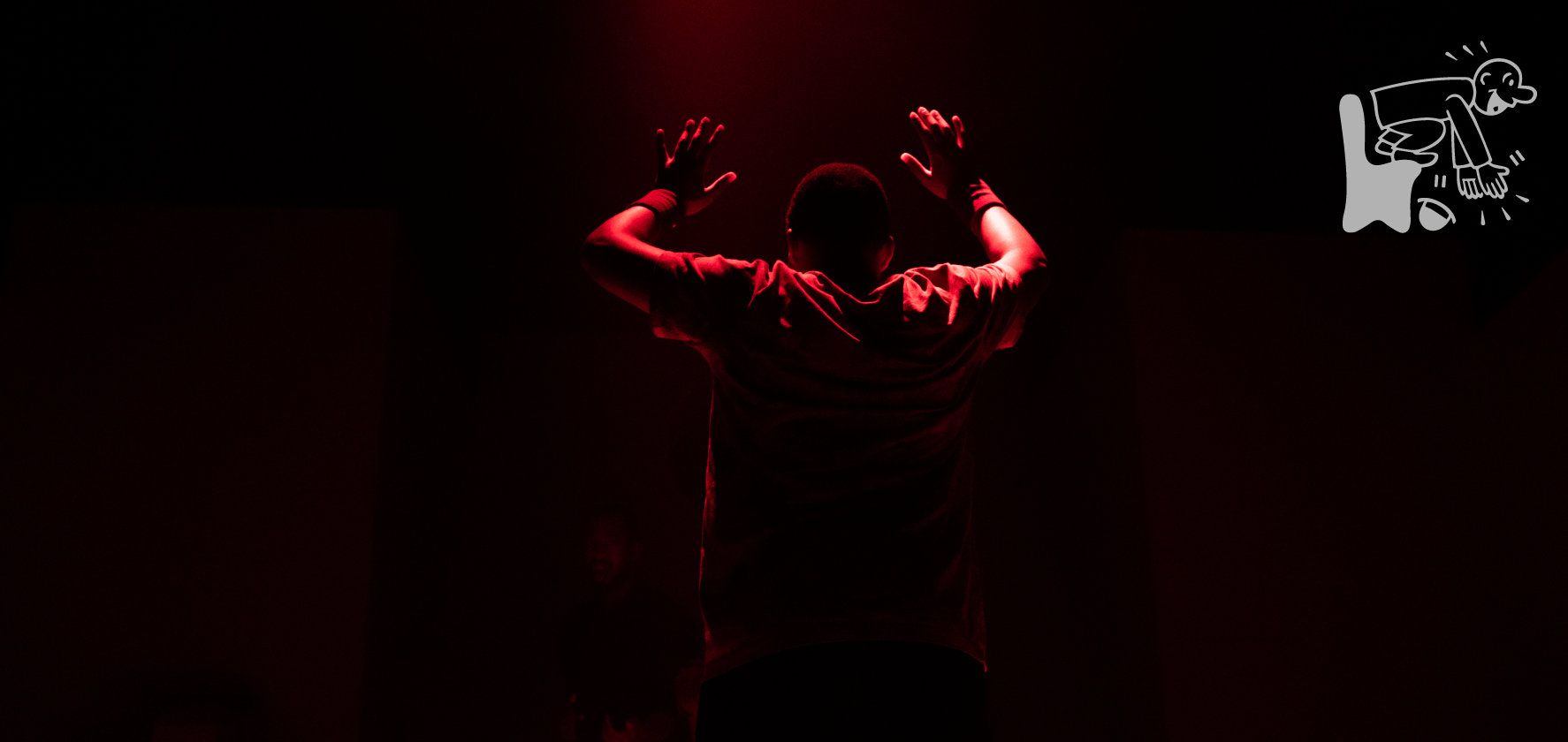A note from Director Darryl V. Jones
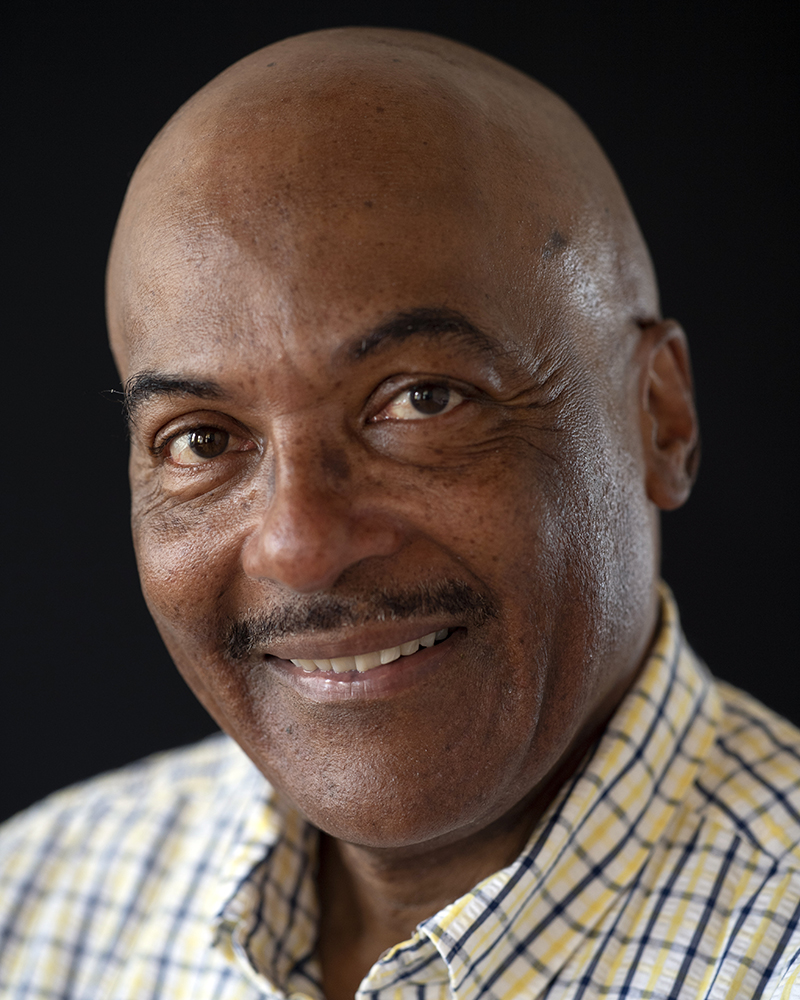
Darryl V. Jones | Photo by DavidAllenStudio.com
The Lorraine Hansberry Theatre is thrilled to partner with Shotgun Players in continuing their legacies of producing theatre for social justice. Lorraine Hansberry wrote of African American dreams being deferred in her landmark play A Raisin in The Sun.
In Kill Move Paradise, we see not just dreams, but life itself deferred, cut short for being black in a society that has been conditioned to view black as fearsome. The lynching of African American men that began during Reconstruction and continued well into the 20th century has left a trail of blood that continues to be spilled today in the gunning down of unarmed African American males by police officers.
But how did we get to this point? In the 1800s, minstrelsy, the first popular American form of entertainment, originated when white performers put on black face makeup to create stereotypes and caricatures of African Americans—to ridicule, demean, oppress and present as less than human. During Reconstruction, the free black man became a challenge to the political system and a threat to the status quo.
In retaliation, the most insidious and lingering minstrel caricature was created—the “Vicious Black Brute.” This stereotype was presented as large, menacing, violent, and on the prowl for white women. The “Vicious Black Brute” caricature incited fear and gave people the justification they were looking for to kill black men. The lynching of black males became a popular blood sport. They were carried out in public and often times people would set up picnics and bring their entire families.
Between 1882 and 1930, the American South experienced an epidemic of fatal mob violence against blacks producing over 3,000 victims. Therefore, it became commonplace to kill and to witness the killing of black men who had not committed any particular offense other than being black. Americans became both fearful of black males and desensitized to their random murders. This fear and desensitization continues today in the gunning down of unarmed African American boys and men by law enforcement and rogue vigilantes. Unarmed black men are five times more likely to be gunned down by police than whites.
In Kill Move Paradise, James Ijames boldly exposes the fear, stereotypes and death threat facing black males in America today. Bringing Shotgun Players and the Lorraine Hansberry artists and audiences together to witness this event is a vital part in extending the dialogue the play begins.
A note from Kill Move Paradise Dramaturg & Shotgun Players Company Member Leigh Rondon-Davis
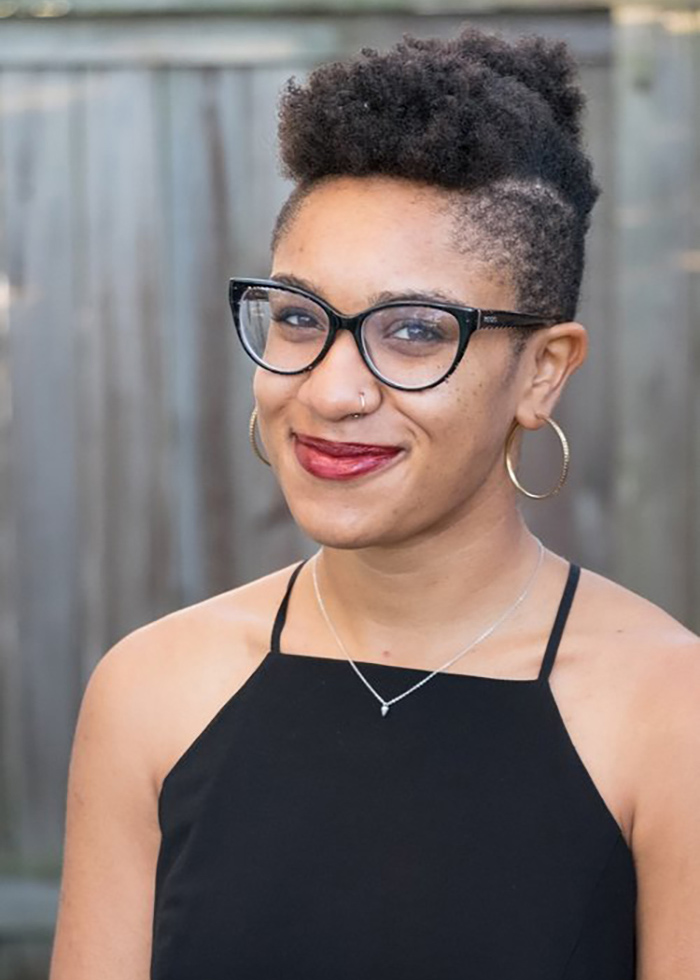
Leigh Rondon-Davis
Kill Move Paradise portrays the brotherhood of four young black men who find themselves in a sort of limbo after each of them is murdered. Audiences from all backgrounds are challenged to confront their biases when a black child asks us directly, “Am I scary?”
The play specifically highlights the black male experience of being perceived as a threat, while also acknowledging the danger and prejudice black women face. While black people as a whole are a higher risk of death and violence, the loss of innocence black children experience is often different between male and female youth. Kill Move Paradise juxtaposes black men’s experiences against the joy, humor, and brotherhood that black men enjoy with one another.
Shotgun selected Kill Move Paradise for our 2019 season because it is a beautiful and smartly written play about the experiences of black men in America, which have historically not been well represented onstage. We felt the play was important to produce because it celebrates and honors black men, but also allows audience members, regardless of ethnicity, to consider some of their racial biases and internalized anti-blackness in order to begin a process of conversation and healing.
History doesn’t repeat, but it rhymes.
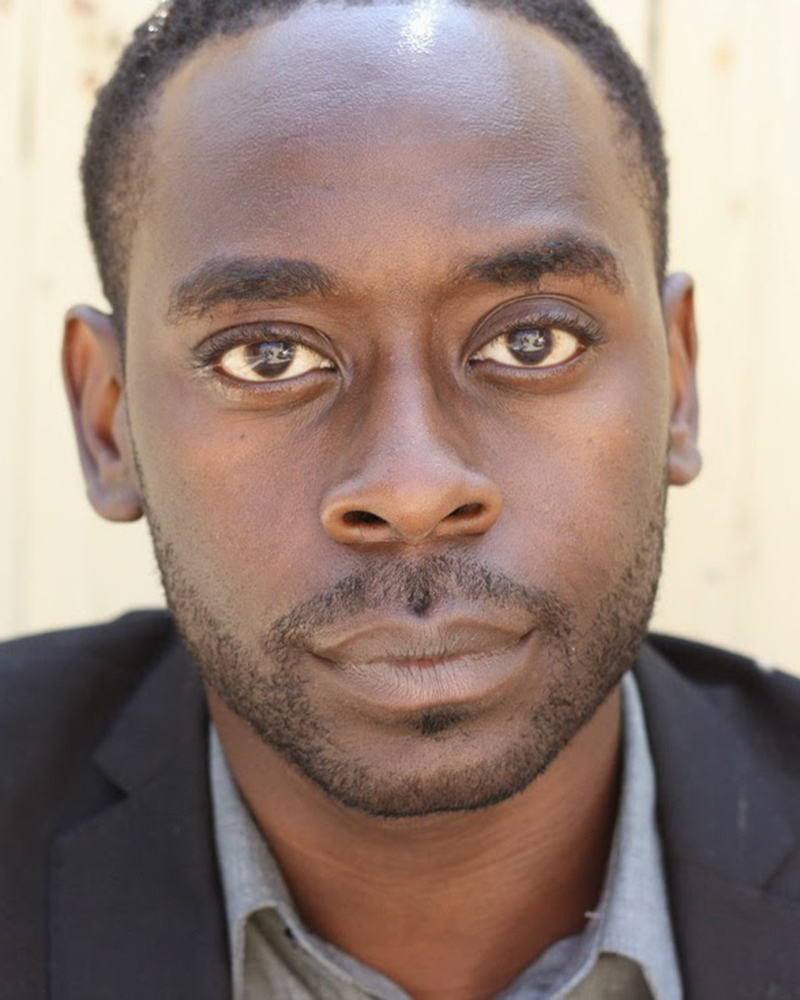
James Ijames
Recently featured in a New York Times project called “Black Writers of Our Time,” Philadelphia-based playwright James Ijames is an artist on everyone's A-list. Here he writes about his most recent play Kill Move Paradise:
“I always say that I hope this play becomes obsolete one day. That’s like a crazy thing for a playwright to say. But I hope one day that people will say we don’t need to do this play anymore because we are different. We are better. And every time I think we have reached a point where maybe this play is obsolete. It’s suddenly not. And the violence with which that reality comes to me never ceases to take my breath. Even now as I write this I’m thinking about Nia Wilson. And I’m also anxious because I know, by the time this play opens and someone is sitting comfortably in those fabulous seats, perhaps sipping a glass of wine, that list will have grown. I’m anxious because by the time this play closes that list will have grown. I don’t say this to be cynical. I don’t say this to be pessimistic. I say it because, unless we really begin to look at why this is happening. Structurally, psychically. We will repeat it. I think it’s Mark Twain who said that history doesn’t repeat, but it rhymes. A repeat you know how to deal with cause you’ve seen it before. But rhyming just different enough to fool you into thinking it’s something new.”
—James Ijames
Learn more about what went into writing Kill Move Paradise in this interview with James Ijames.
Bay Area souls lost
Based on data from MappingPoliceViolence.org, 50 people were killed by police in Alameda County between 2013 and 2018. 22 of those people (almost 50%) were black. These numbers are particularly startling because black people make up only 12% of the population in Alameda County.
Mapping Police Violence is a research collaborative collecting comprehensive data on police killings nationwide to quantify the impact of police violence in communities.
Oscar Grant*
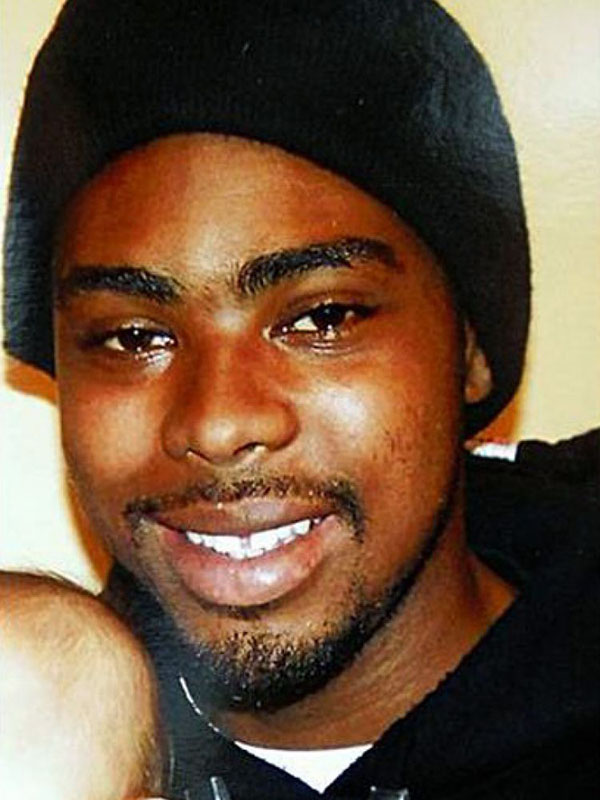
Oscar Grant was a 22-year-old man who was fatally shot in the early morning hours on New Year's Day in 2009 by BART Police Officer Johannes Mehserle at Fruitvale BART Station in Oakland, California. Grant’s murder sparked huge protests in downtown Oakland and later became the subject of the feature film Fruitvale Station, written and directed by Ryan Coogler.
Derrick Jones*
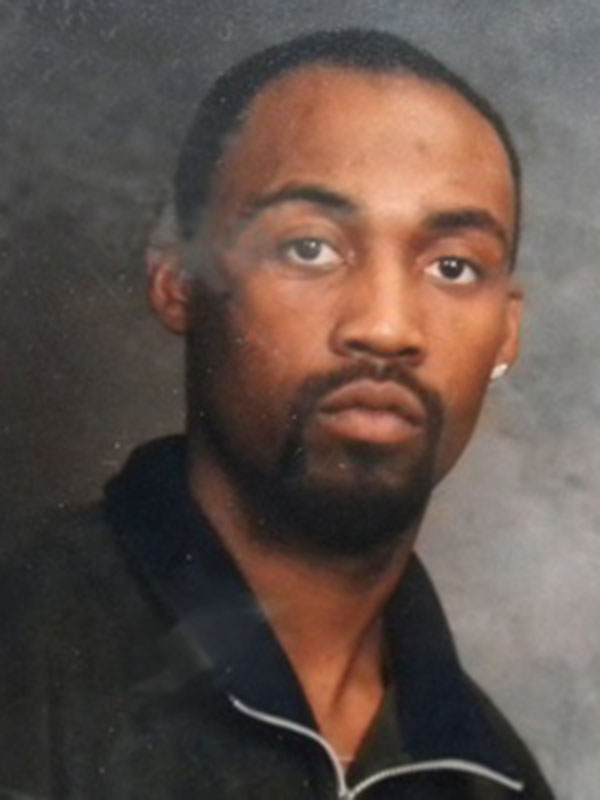
Derrick Jones, a 37-year-old barber, was shot to death by two police officers in Oakland on November 8, 2010, after they mistook the small scale he was carrying for a gun during a chase on foot. Police allege the officers involved shot Jones fewer than five times, but Jones’ friends and relatives say that he was a family man, and he was shot at least six times in the back.
Raheim Brown*
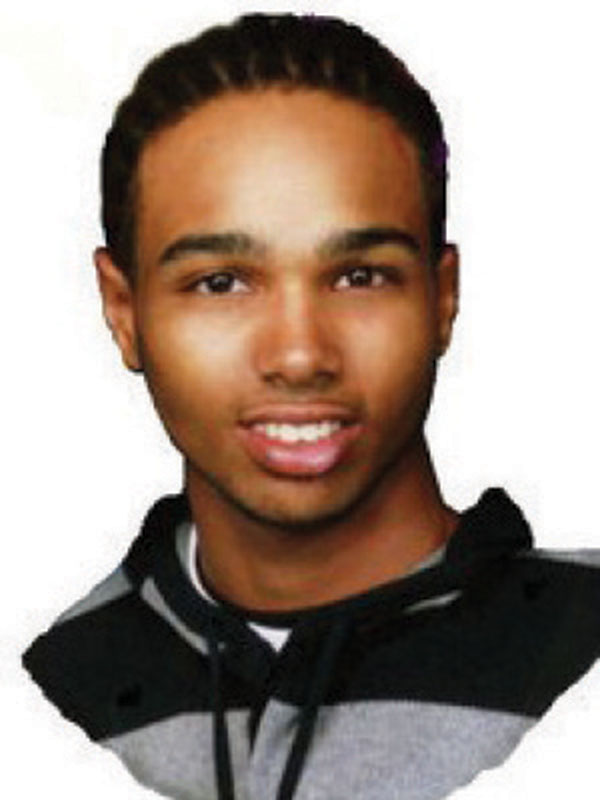
Raheim Brown was a 20-year-old man who was shot by OUSD Officer Barhin Bhatt outside of Skyline High School in Oakland on Saturday, January 22, 2011. Bhatt claimed Brown was threatening his partner with a screwdriver and shot Brown twice, then five more times just seconds later. Bhatt’s partner did not shoot at Brown, later admitting he “didn’t see a threat.”
Kayla Moore
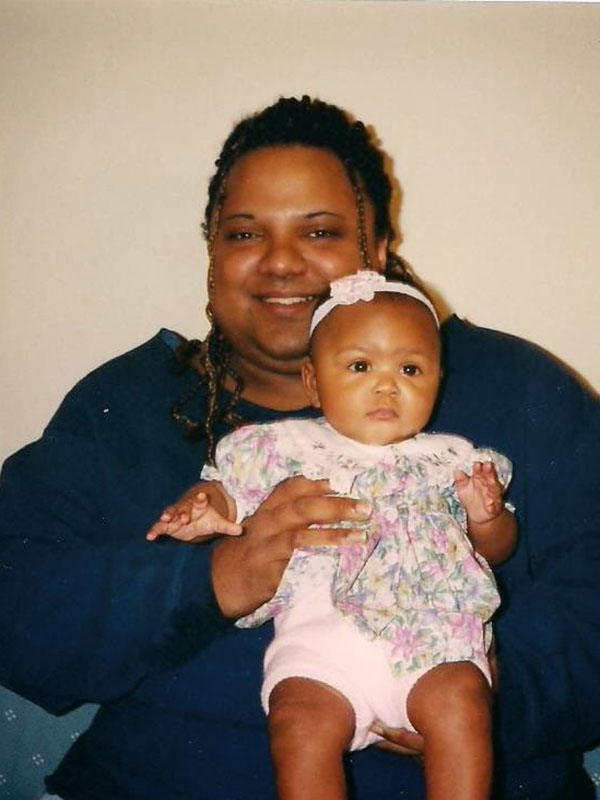
Kayla Moore was a 41-year-old Black trans woman with a history of mental illness, who died while in police custody after officers responded to a disturbance call in downtown Berkeley on February 12, 2013. In 2014, Berkeley’s Police Review Commission found that one officer involved in the 2013 in-custody death of Kayla Moore exercised improper police procedure.
Demilo Hodge
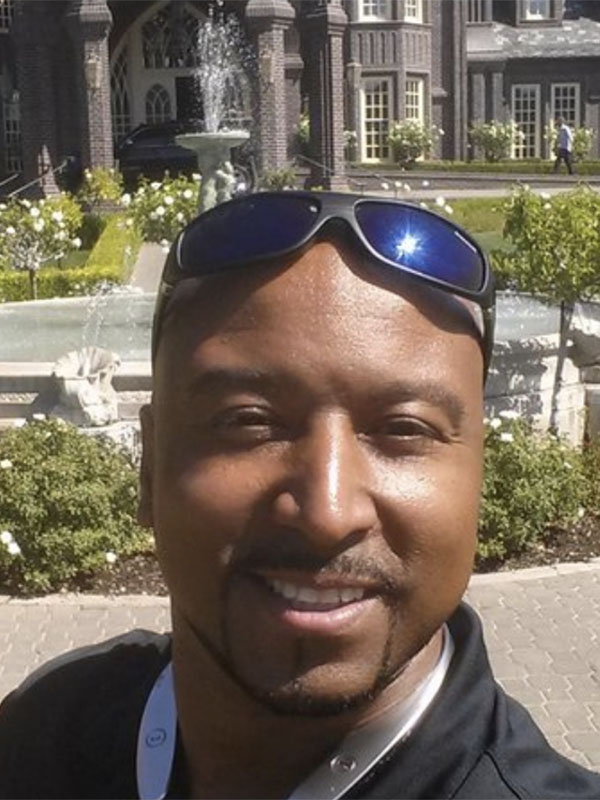
Demilo Hodge was a 45-year-old man and owner of Excursion Limousine Service based in Napa who was shot over 30 times by six officers on I-80 in Emeryville on September 27, 2017, after allegedly shooting at police, however it is not clear in video evidence if Hodge actually fired first.
Nia Wilson*
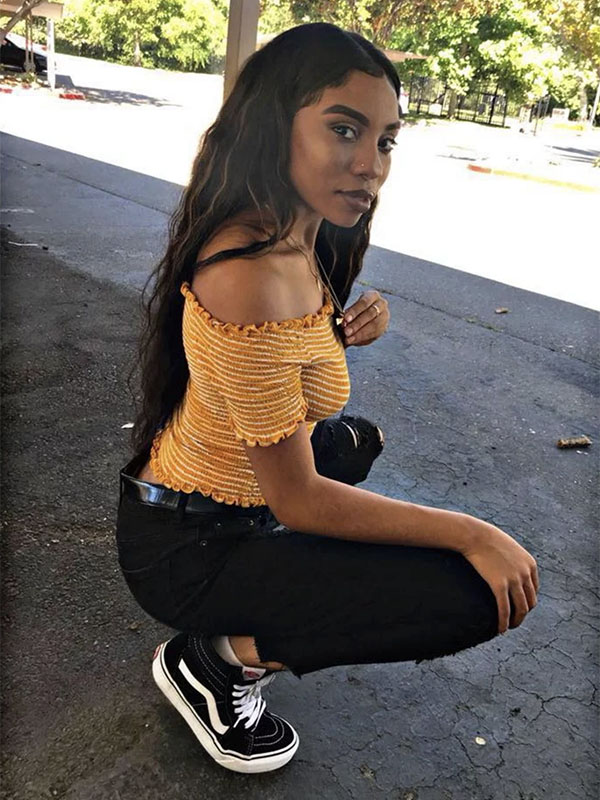
Nia Wilson, 18, was murdered by John Cowell with a knife on July 22, 2018, at MacArthur BART Station in Oakland; her sister Letifah was also attacked, but survived. Authorities have yet to establish a motive for the attack and say that there wasn’t enough evidence to conclude that Wilson’s murder was a racially motivated crime. However, for many people, the context of anti-black racism in America could not be ignored.
*Included in the list of names in the script and named by Isa in this production.
This production’s list of black people killed by law enforcement or white civilians
Amadou Diallo
Malcolm Ferguson
Patrick Dorismond
Earl Murray
Ronald Beasley
Prince Jones
Timothy Thomas
Orlando Barlow
Ousmane Zongo
Alberta Spruill
Timothy Stansbury
James Brisette
Ronald Madison
Henry Glover
Sean Bell
DeAunta Terrell Farrow
Tarika Wilson
Oscar Grant
Shem Walker
Victor Steen
Kiwane Carrington
Aaron Campbell
Steven Eugene Washington
Aiyana Jones
Danroy Henry
Derrick Jones
Reginald Doucet
Raheim Brown
Kenneth Harding
Alonzo Ashley
Kenneth Chamberlain
Ramarley Graham
Trayvon Martin
Sgt. Manuel Loggins, Jr
Raymond Allen
Dante Price
Nehemiah Dillard
Wendell Allen
Shereese Francis
Rekia Boyd
Kendrec McDade
Ervin Jefferson
Tamon Robinson
Shantel Davis
Chavis Carter
Reynaldo Cuevas
Timothy Russell
Malissa Williams
Kimani Gray
Deion Fludd
Larry Eugene Jackson, Jr.
Carlos Alcis
Jonathan Ferrell
Miriam Carey
Andy Lopez
Jordan Baker
McKenzie Cochran
Yvette Smith
Victor White III
Eric Garner
Tyree Woodson
John Crawford III
Michael Brown
Dante Parker
Ezell Ford
Kajieme Powell
LaQuan McDonald
Akai Gurley
Tamir Rice
Rumain Brisbon
Walter Scott
Sandra Bland
David Felix
Freddie Gray
Kalief Browder
Quintonio LeGrier
Bettie Jones
Alton Sterling
Philando Castile
Paul O’Neal
Korryn Gaines
Jordan Edwards
Charleena Lyles
David Jones
Marc Brandon Davis
Aaron Bailey
DeJuan Guillory
Brian Easley
Antonio Garcia, Jr.
Herbert Gilbert
Charles David Robinson
William Matthew Holmes
Anthony Antonio Ford
Dewboy Lister
Calvin Toney
Lawrence Hawkins
Keita O’Neil
Jean Pedro Pierre
Dennis Plowden
Arther McAfee Jr.
Ronnell Foster
Shermichael Ezeff
Cameron Hall
Stephon Clark
Danny Ray Thomas
Juan Markee Jones
Marcus-David L. Peters
Khalil Lawal
Maurice Granton, Jr.
Robert Lawrence White
Terrell Eason
Harith “Snoop” Augustus
Diamond Stephens
Nia Wilson
Antwon Rose II
Anthony Marcell Green
Rashaun Washington
Armando Frank
Daniel Hambrick
Jeffrey Dennis
Willie McCoy
De’Angelo Brown
D'Ettrick Griffin
Bradley Blackshire
Kayla Moore
DeMilo Hodge

